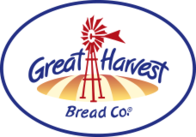Real Food. Real People.
The history of bread is one that goes hand in hand with the evolution of humanity. Keep reading this post by Great Harvest of Newtonville in Newtonville for everything you've ever wanted to know about this fascinating history.


Why is Bread Important?
Bread is essential on many levels, from historical to nutritional aspects. Bread has been a cornerstone of human evolution, from hunter-gatherers to humans who form societies. Bread has also had its hand in reinforcing class structures and has been vital for human nourishment.Nutritional Aspects
The earliest versions of bread became popular because of the ease of transporting it while farming or hunting. But it also became a staple in many cuisines around the world. Today we know that bread provides nourishment in the form of fiber that can help keep cholesterol levels and blood sugar regulated which is essential to staying healthy.Society and Bread
An important thing to mention in the history of bread is that for thousands of years, bread has been a staple in societies. In early cultures, the type of bread you had access to was directly associated with your class. But no matter what class you were a part of, bread was available and considered a vital food for everyone.If you're looking for bread made from the best ingredients, visit Great Harvest Bread Co., where bread is freshly baked daily. Great Harvest Bread Co. is a delicious and nutritious bread option for the whole family. Visit their website for more information on their variety of bread and lunch menu. To place an order, call 617-928-1162 anytime.
The Origins of Bread
The history of bread starts with the domestication of wheat. Domestication of wheat happened around 30,000 years ago in the Middle East. Then, growing wheat spread through North Africa, East Asia, and Europe. Archeologists have found tools used to grind grain, suggesting that humans were processing grain to create things like porridge and leaving out the porridge to dry in the sun, which turned into the earliest forms of bread. It's believed that as early as 10,000 BC, Egyptians created bread much more similar to today's loaves. Egyptians developed the earliest forms of bread with a crust and discovered that different grains could be used to make different types of bread. This led to an uptick in agriculture, which helped form larger settlements. Even though Egyptians are credited with developing the bread we know today, almost every country and civilization worldwide has a type of bread made with local ingredients and techniques. Fun fact: The discovery of the sourdough starter is credited to Egyptians who discovered that leaving a piece of bread overnight in water with sugar could be used as a levener for baking the next day.Modern Bread
The beginning of the 20th century saw many developments in the process of making bread and its industrialization and mass production. In the 1920s, Otto Frederick Rohwedder invented a machine that could slice bread. Later on, it would be able to wrap it too. During World War II, the US government mandated that white flour foods be fortified with nutrients such as iron, riboflavin, thiamin, and niacin, which US military recruits lacked. Lastly, towards the end of the 20th century, automated breadmakers for domestic use were developed to make it easier to make bread at home.Your best option for delicious and nutritious bread in Newtonville is Great Harvest Bread Co. Look at their menu for more information on the bread they bake daily and to get to know their delightful lunch menu. Once you're ready, place an order at 617-928-1162!
Traditions Around Bread
Bread is so ubiquitous around the world that there are many traditions and sayings around the world that have bread at the center. Here are a few of them:- In Christianity, bread is used to represent the body of Christ.
- In English, bread and dough are used as slang terms that mean money.
- "A baker's dozen" dates back to the 13th century, when a baker could be thrown in jail if they were discovered selling bread below the standard size and weight. To avoid jail time, bakers started including a 13th loaf, just in case.
- Some countries in Southern and Eastern Europe offer bread and salt to welcome guests.
- The translation of "Lord" from Old English means "bread-keeper."
The history of bread wouldn't be complete without bakeries like Great Harvest Bread Co., where they bake delicious bread daily. To place an order today, call 617-928-1162 or browse through their menu for more information on their bread and the processes they follow to ensure quality loaves every time.

Great Harvest Bread of Newtonville
We'd love to be in touch with you

